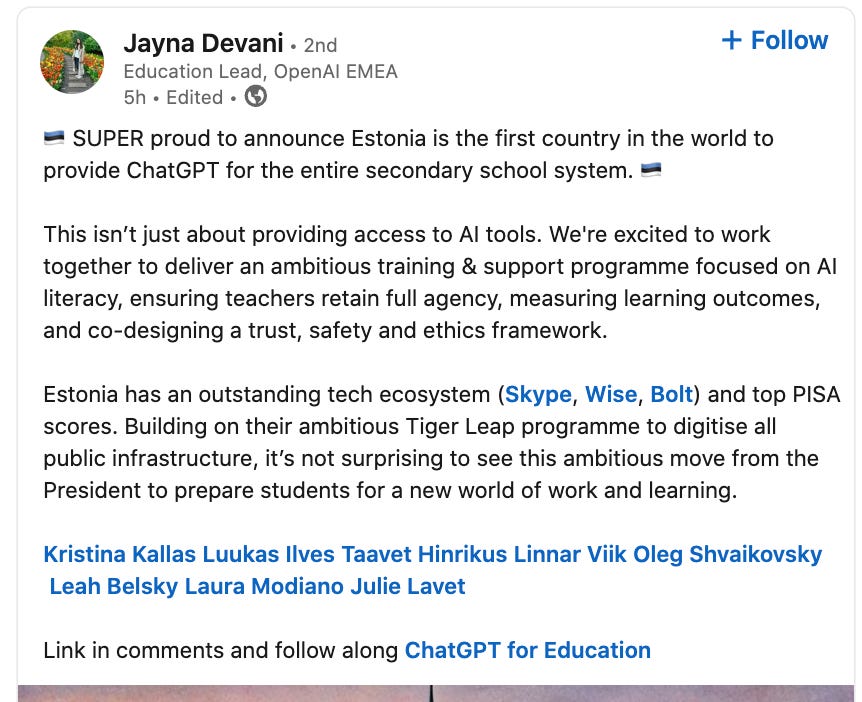While controversy remains regarding student use of AI in the US, experimentation grows globally. Estonia is providing free access to all students in its secondary school system.
They are also focused on AI literacy, measuring learning outcomes, and creating frameworks of trust, safety, and ethics.
As some nations forge ahead, we will be able to learn from many efforts.
A few quick thoughts
(1) No wrappers/”edtech,” just ChatGPT (though probably within some type of ChatGPT EDU system that may be tailored to Estonia; see below). It seems OpenAI is interested in this market, at least at scale (OpenAI and the California State University system bring AI to 500,000 students and faculty)
(2) I hope they are also using human deep learning approaches (debate, entrepreneurship, etc. to integrate). If not, “cognitive offloading” will occur.
(3) While a pilot globally, this is system-wide change in Estonia. Estonia’s education system is bigger than any school district in the US.
(4) Despite #3, smaller nations may be able to innovate faster. We’ve seen similar efforts in Singapore and South Korea.
(5) Given Estonia’s tech industry (Skype, Wise, Bolt), this move helps feed their own AI talent pipeline and strengthens their global competitiveness.
(6) If OpenAI is involved in a nationwide deployment, it likely means Estonia is getting a tailored version of ChatGPT that might include stronger alignment with Estonia’s curriculum. There *may* be built-in safeguards for ethics & bias mitigation that are specific to Estonia.
(7) This could be a test case for future AI models fine-tuned for specific countries or (state) education systems.
(8) Estonia will be one of the first countries where an entire generation of students grows up with AI as a normal part of learning. This could have huge cognitive and pedagogical effects—for example:
Faster adoption of AI-assisted problem-solving skills
Greater emphasis on critical thinking vs. memorization (if implemented properly)
Potentially lower resistance to AI in the workplace in the future
(9) In the past, countries that prioritized English education (like China, the Netherlands and Singapore) gained a major edge in global business and technology.
AI literacy could be the next version of that advantage—a skill that positions Estonia’s workforce ahead of slower-moving nations. If AI tools shape communication, research, and problem-solving, then countries that master AI early might have a geopolitical and economic advantage in the next decade.
(10) How might such developments impact the US education system moving forward?




